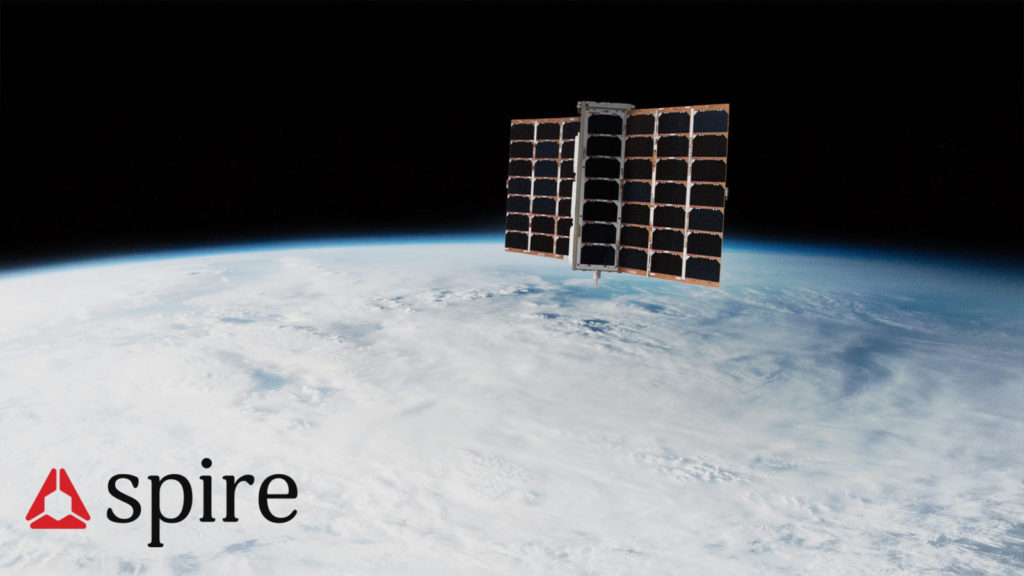How small satellites forge a new path for government space operations
CubeSats now serve as reliable and low-cost platforms for hosted payloads.
The CubeSat has come a long way from its early days as a university experiment. Orbital services on these platforms provide governments and contractors a quick, affordable, and secure route to expand satellite operations, with all the added benefits of public-private partnerships.
From classroom lessons to real-world applications
Professors from two universities in California put forward an idea for a satellite in the late 1990s that helped revolutionize the space industry. They designed a tiny device that students could engineer and personalize first-hand without stratospheric costs, according to Space.com. The resulting CubeSat, a four-inch cube weighing about three pounds, suddenly made space more accessible.
Spire Global’s founders recognized the potential of CubeSats. They built and launched their own device to teach students about space, and along the way, captured the attention of an industry that was starting to embrace this new technology.
Since then, CubeSats have been tested, refined, and standardized, collectively logging countless orbital operations. They are now used in a myriad of forms, performing critical public and commercial services. The technology has proved particularly successful in remote sensing applications, including advanced radiofrequency sensing, traditional electro-optical and infrared imagery, and space-based radar. It’s the veritable Swiss army knife of space.
With little doubt left about CubeSat’s vast capabilities, the devices now serve as reliable and low-cost platforms for hosted payloads. These orbital services invite clients to fit their own sensing devices into commercial CubeSats, like customizing a multitool with a specialized selection of instruments.
NEED A RIDE?
Spire’s Orbital Service is designed to accommodate new customer payloads quickly and efficiently allowing for an incredibly fast rollout of new capabilities.
An opportunity for governments and institutions
Today, experts agree that small satellites are well equipped to help support the United States federal government’s missions in space. A Center for a New American Security study found: “Now is an appropriate time for the U.S. military and intelligence community to at least modestly increase their investment in small satellite capabilities—both as a hedge and to create options.”
Historically, the federal government has relied on large, complex, and costly satellites that can take years to develop, build, and launch. Meanwhile, the space sector is experiencing an influx of new actors, both commercial companies and state-run organizations. Space is moving fast; the clock is ticking.
“We are the best in the world at space today, [but] our level of superiority is diminishing,” said General John W. Raymond, the head of the U.S. Space Force, according to Foreign Policy.
Hosted payloads on CubeSat platforms offer a highly secure way to achieve rapid innovation. The Government Accountability Office recently found that “using commercial satellites to host government sensors or communications packages—called payloads—may be one way [the Department of Defence] can achieve on-orbit capability faster and more affordably.”
With orbital services, getting critical technology into orbit can be fast and cost-effective, and has the added advantages of operational security and a ready route to expansion. The main benefits include:
Rapid testing on a reliable platform
As mentioned earlier, the CubeSat platform has been honed over many years and across applications. Its proven performance and reliability helps ensure you only need to focus on designing and testing your payload, without having to worry about the surrounding technology.
Better yet, you can iterate and test more rapidly with smaller satellites. At Spire, we can build our CubeSats in just ten days, cutting down the overall timeline from design to launch to just six months. And once in space, CubeSats can be continuously updated to enhance their operational software and data processing capabilities.
“New technologies may be continually incorporated into space systems using hosted payloads,” said the GAO.
Safety in numbers
Nothing is more important than resilience and security. Hosting mission-critical payloads over a constellation of satellites supports operational safety.
“A target set composed of a large number of small satellites will be harder to disable or disrupt than one composed of a small number of large satellites,” according to the CNAS.
Furthermore, Spire’s Orbital Services offerings include built-in, end-to-end data encryption. This adds a layer of protection, from satellites down to customers, that complements their native data security systems. And since we design and build our satellites in-house, we also manage secure payload integration.
A small way to cut big costs
Depending on large satellites to continuously advance payload capabilities can come at a cost—a high one. Traditional development schedules can be expensive and take years, and should something go wrong, replacing devices might call for another costly round of production. Hosted payloads on CubeSats can be a more affordable alternative.
With our cutting-edge CubeSat technology and rapid manufacturing process, Spire can offer government customers an inexpensive hosted payload solution. This helps ensure expanding operations and upgrading technology stays affordable, and rapid replenishment is economically viable. They are light in weight, and on your budget sheet.
“Some government agencies have reported saving hundreds of millions of dollars to date from using innovative arrangements such as hosted payloads,” said the GAO.

Your mission partner
When it comes to hosted payloads, Spire isn’t just a service provider. We are a partner. The relationship offers more opportunities to interact, collaborate, and create secure, reliable, and effective solutions. As Aerospace explains, public-private partnerships “can demonstrate significant advantages such as improving delivery schedules, quality of service, and innovation.”
National security solutions provider, KeyW, for example, partnered with Spire to operationalize its cutting-edge technology through hosted payloads. “By leveraging Spire’s reliable, proven and cost-effective capability, KeyW intends to demonstrate our speed and innovation,” said Bill Weber, the company’s chief executive officer.
Spire is also participating in the National Geospatial-Intelligence Agency’s MagQuest challenge to develop innovative solutions for measuring geomagnetic data. We are proposing a modified version of our CubeSat to collect geomagnetic data at a precision and temporal frequency not previously available on such a small and cost-effective platform. The novel design will be supported by our ground stations, cloud-based processing, and data distribution network.
Our partnerships also extend to multinational institutions like the European Space Agency. We are a partner to its Pioneer program, which encourages the development of new technology and its demonstration in orbit.
Beyond hosted payloads, Spire also offers our partners tailored data services. We contribute maritime, aviation, and weather data to ESA’s Earth Online. We work closely with our partners on collaborative scientific development, especially in GNSS-based radio occultation and reflectometry, two capabilities that complement other remote sensing techniques.
With both hosted payloads and data solutions, a partnership with Spire can look forward to rapid success and long-term progress. We’re an ally for the digital age.
Build A Satellite For Your Organization
The production, launch and operations infrastructure is already established and commercially proven. All that is needed is your vision.
WASHINGTON DC
 Spire’s newest office is located at the heart of the satellite revolution. Our DC location is home to the Spire Federal and legal teams, made up of dedicated, mission-oriented individuals working diligently to address national security concerns. The Spire Federal office is surrounded by a fast-moving culture that boasts great restaurants, high tech companies, and all types of personalities. Here in our nation’s capital, a LEMUR can fit right in!
Spire’s newest office is located at the heart of the satellite revolution. Our DC location is home to the Spire Federal and legal teams, made up of dedicated, mission-oriented individuals working diligently to address national security concerns. The Spire Federal office is surrounded by a fast-moving culture that boasts great restaurants, high tech companies, and all types of personalities. Here in our nation’s capital, a LEMUR can fit right in!
8000 Towers Crescent Drive, Suite 1225
Vienna, Virginia 22182
United States of America
 Written by
Written by


